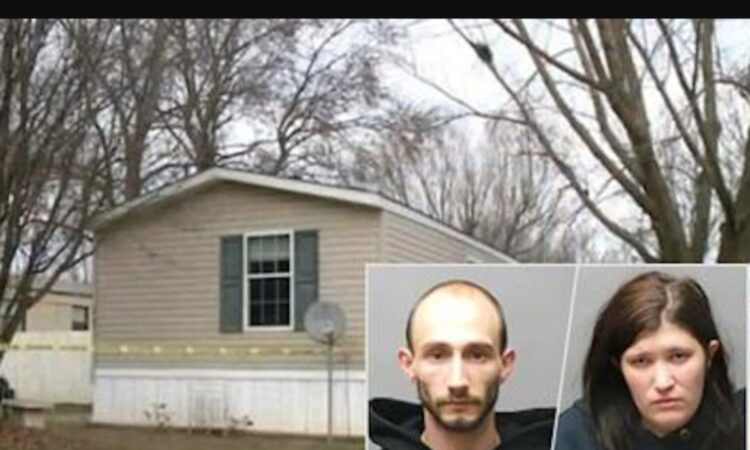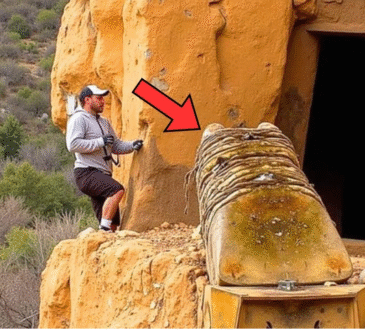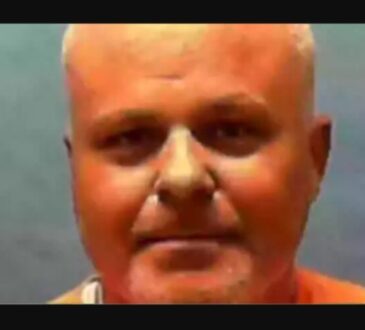
In a quiet neighborhood, tucked away between nicer homes, stood a run-down trailer that hid a terrible secret. Inside those thin walls, a little boy named Braydon spent his last days in a way no child ever should. His story isn’t just about crime or punishment – it’s about how love can disappear when darkness takes over, and how the smallest, most helpless among us sometimes pay the highest price.
Braydon was just two years old – an age when children should be discovering the world with wide, wondering eyes. At two, kids are learning to run, to laugh at silly faces, to wrap their tiny arms around their parents’ necks for bedtime hugs. But Braydon’s world was different. His parents, Kathlen and Lucas, had become lost in their own private hell of drug addiction. What started as bad choices had turned into a nightmare that would cost an innocent boy his life.
The day it happened started like any other in that sad trailer home. Kathlen, who was pregnant at the time, and Lucas had been awake for nearly two days straight, caught in the endless cycle of making and using meth. The drugs had become their entire world – their hunger, their exhaustion, even their need to use the bathroom all took second place to the next high. In that fog of addiction, they forgot the most basic thing – their responsibility to their little boy.
They thought they were being responsible in their own twisted way. It was cold outside, so they put Braydon in a room with a space heater. They turned it up as high as it would go, locked the door, and went back to their drugs. Maybe in their messed-up thinking, this seemed like good parenting – keeping him warm while they did what they felt they needed to do. But that heater had no safety switch, no way to turn itself off when the room became too hot. Hour after hour, the temperature climbed while just a few feet away, his parents floated in their drug-induced haze.
What must it have been like for that little boy as the room grew hotter? Did he cry out at first, wondering why no one came? Did he try to bang on the door with his small hands? As the heat became unbearable, did he crawl into a corner, confused and scared, his tiny body sweating until there was no sweat left? The medical report would later show he essentially baked to death – a phrase so horrible it’s hard to even write down.
The most heartbreaking part? His mother heard something. Somewhere in her drug-clouded mind, a mother’s instinct tried to break through. She later told police she heard noises from Braydon’s room – maybe crying, maybe banging – but the drugs held her tighter than any motherly love could at that moment. “I thought about checking,” she would say, “but I just… didn’t.” By the time the sounds stopped and she finally opened that door, her son was gone.
When police arrived after neighbors reported a possible meth lab, they found a scene of unimaginable neglect. The trailer was filthy beyond description – human waste on the floors, rotting food, the stench of chemicals and decay. And in that awful place, they found Braydon’s small body, his skin telling the terrible story of his final hours. The autopsy showed he hadn’t been fed properly in days – his little body was wasting away even before the heat took him.
This wasn’t Kathlen’s first time failing her children. Just months earlier, she’d been arrested for driving high with kids in the car. The system had given her chances, but addiction is a cruel master that doesn’t care about second chances. Now she and Lucas faced the consequences – 21 years in prison for each of them.
As they were led away to begin their sentences, one has to wonder – do they truly understand what they’ve done? When the drugs finally leave their systems in prison, will the full weight of their actions crush them? Or has addiction damaged them so deeply that even the death of their own child can’t break through?
Little Braydon’s story forces us to ask hard questions about addiction, about parenting, about how society protects its most vulnerable. In the years since the pandemic, reports of child abuse have risen sharply across America. Each number in those reports is a real child – someone’s son or daughter who depends on adults to make good choices.
Tonight, as you tuck your own children into bed or kiss them goodnight, take an extra moment to be grateful for the simple safety of their blankets, their nightlights, their knowledge that someone will always come when they call. That’s all Braydon needed – someone to come when he called. And no one did.




